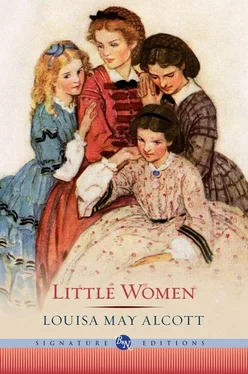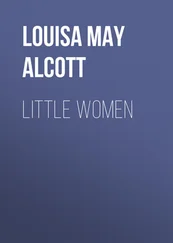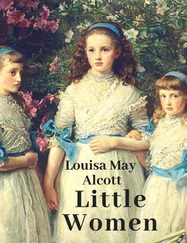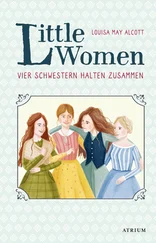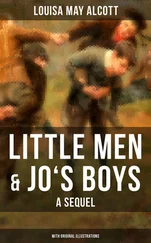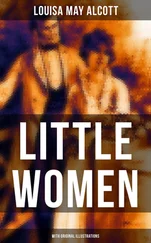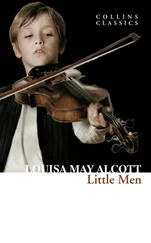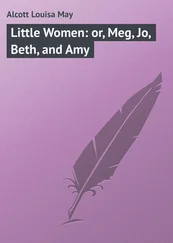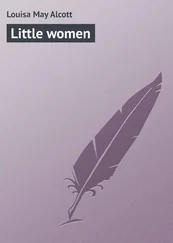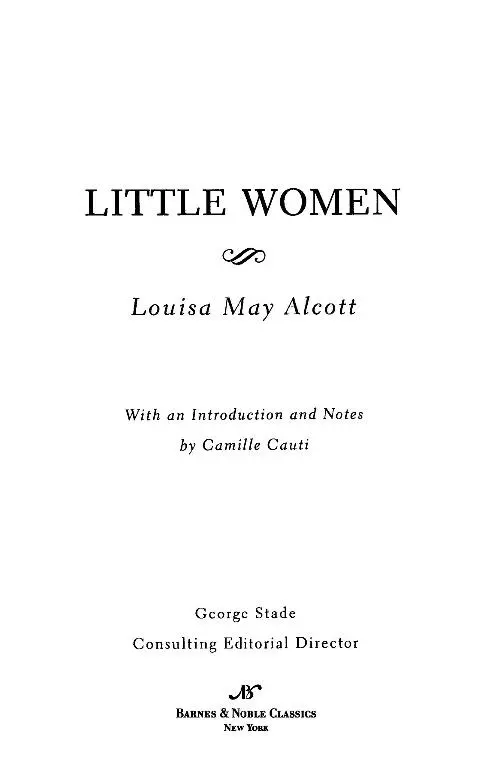
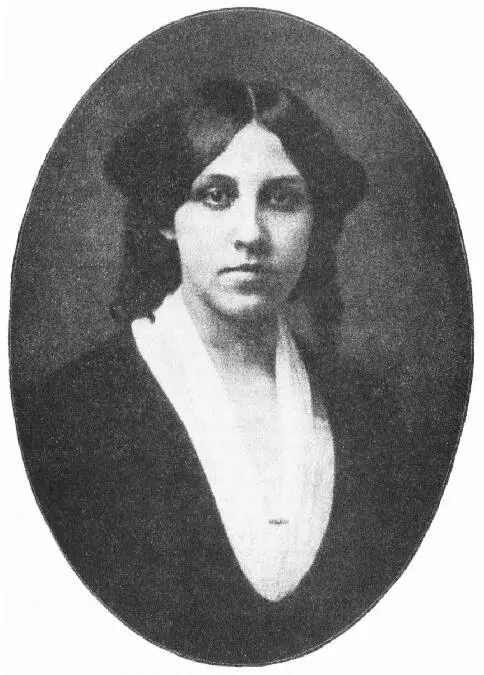
Louisa May Alcott was born on November 29, 1832, in Germantown, Pennsylvania, the second of four daughters of Amos Bronson and Abigail Alcott. Her mother, known in the family as “Abba,” was from a distinguished Boston family. Her father, a self-educated son of farmers, was an educator and reformer; his controversial and often unpopular teaching philosophies kept him from steady employment and the family (Louisa called it the “Pathetic Family”) continually on the edge of poverty. The Alcotts often relied upon the generosity of family and friends, including American essayist and poet Ralph Waldo Emerson, who frequently provided financial support.
When Louisa was two, the family moved to Boston to be near Abba’s family and Emerson. They would move frequently between Boston and Concord for the rest of Louisa’s life. Bronson Alcott became part of a group of writers and philosophers known as the Transcendentalist Club, which included Emerson and writer Henry David Thoreau, both of whom Louisa idolized. Throughout her life Louisa was brash and moody, with a quick tongue that often angered her father.
Alcott wrote her first stories at age fifteen, during what she called her “sentimental period.” As a teenager, she pursued many dramatic and literary endeavors: producing and acting in family theatricals; creating a series of tales for Emerson’s young daughter, Ellen, which she called Flower Fables; and founding a family newspaper, the Olive Leaf. Her first published work was the poem “Sunlight,” which appeared pseudonymously in Peterson’s Magazine in 1851.
Louisa’s father didn’t earn sufficient income to support the family, so Louisa, her mother, and her sisters worked—Abba as one of the nation’s first social workers, the girls at sewing and teaching. Alcott viewed herself as a pillar of financial and emotional support to her female relatives. She was devastated in 1858 when her younger sister, Elizabeth, died of scarlet fever and her elder sister, Anna, announced her engagement.
During the American Civil War, Alcott moved briefly to Washington, D.C., to work as a Union Army nurse, until a bout with typhoid cut her service short. While convalescing, she reworked her letters to her family into a series called Hospital Sketches; published in 1863, it brought her favorable notice as a writer. Over the next several years she published a number of children’s collections and anonymously wrote fantastic and gothic tales. In 1867 she was offered the editorship of the children’s magazine Merry’s Museum. The following year, commissioned by the publisher Roberts Brothers, she wrote Little Women in six weeks. With the publication of Little Women, Alcott gained immense fame and achieved long-sought financial security for herself and her family. The sequel Little Men: Life at Plumfield with Jo’s Boys was published in 1871.
Always active in the suffrage movement, in 1879 Alcott became the first woman to vote in Concord. When her sister May died in childbirth the same year, Alcott adopted the baby, a girl named Lulu. Alcott’s health declined greatly during this period, due to the lingering effects of mercury in the treatment she had received for typhoid fever during the Civil War. Too weak to write extensively, Alcott would publish and republish her children’s story collections until her death. The feminist-leaning Jo’s Boys was also published during this period, in 1886. Louisa May Alcott died March 6, 1888, two days after the death of her father. She is buried with her parents.
THE WORLD OF LOUISA MAY ALCOTT AND LITTLE WOMEN
1832 Louisa May Alcott is born in Germantown, Pennsylvania, on November 29, her father’s birthday; she is the second of four children of Abigail “Abba” Alcott and Amos Bronson, a teacher and educational reformer. Also born this year are Horatio Alger and Lewis Carroll; Johann Wolfgang von Goethe, who will become one of Alcott’s favorite authors, dies.
1834 Struggling financially and in search of work, Bronson moves his family to Boston, nearer the support of longtime friend Ralph Waldo Emerson and Abba’s family. Bronson opens the Temple School, based on his controversial teaching methods.
1835 Abba gives birth to her third child, Elizabeth Sewall Alcott. Samuel Langhorne Clemens, known as Mark Twain, is born.
1836 Emerson, Henry David Thoreau, Bronson Alcott, and other philosophical and literary scholars in the area form what becomes known as the Transcendentalist Club. Emerson publishes Nature, an essay explaining the philosophy of transcendentalism, which asserts God’s existence in man and nature, and individual intuition as the highest source of knowledge.
1837 Victoria becomes queen of England.
1838 Charles Dickens’s novels Oliver Twist (1837-1839) and Nicholas Nickleby (1838-1839) attain great popularity.
1840 Forced to close the Temple School—parents alarmed by Bronson’s teaching methods and his admittance of a mulatto child have withdrawn their children—Bronson Alcott moves his family to Concord, Massachusetts, where Emerson and Thoreau live. Louisa attends the Concord Academy, run by Thoreau and his brother. The fourth and final Alcott child, Abigail May (called May), is born.
1841 Emerson publishes Essays.
1843 Bronson cofounds a utopian communal farm, Fruitlands, in the rural town of Harvard, Massachusetts; he and his family live there until the experiment fails in 1844.
1844 Emerson publishes Essays: Second Series.
1845 With an inheritance left to Abba, the family purchases a house in Concord, named Hillside, where Alcott finally has a room of her own.
1847 The novels Jane Eyre by Charlotte Bronte and Wuthering Heights by Emily Bronte are published.
1848 Alcott creates the Flower Fables stories for Emerson’s young daughter Ellen. Later in the year Alcott writes her first adult story, “The Rival Painters: A Tale of Rome.” The Alcotts move back to Boston, where Abba finds employment as one of the nation’s first social workers.
1849 Alcott creates a family newspaper called the Olive Leaf Publication begins of Dickens’s novel David Copperfield. Alcott writes her first novel, The Inheritance, which is not published until 1996.
1850 Emerson’s Representative Men and Nathaniel Hawthorne’s The Scarlet Letter are published.
1851 Peterson’s Magazine publishes Alcott’s poem “Sunlight” under the pseudonym Flora Fairfield; it is her first published work. To help support their family, Alcott and her sisters find jobs teaching and sewing. Hawthorne’s The House of the Seven Gables and Herman Melville’s Moby-Dick are published.
1852 The Boston periodical the Olive Branch publishes “The Rival Painters: A Tale of Rome.” Hawthorne purchases Hillside, giving the Alcotts some financial security. Alcott and her sister Anna open a school in the parlor of their home in Boston. Harriet Beecher Stowe’s Uncle Tom’s Cabin is published.
1853 Bronson goes on a lecture tour in the Midwest.
1854 Alcott’s Flower Fables, dedicated to Ellen Emerson, is published; her short story “The Rival Prima Donnas” appears in the Saturday Evening Gazette. Thoreau’s Walden; or, Life in the Woods is published.
1855 The family moves to Walpole, New Hampshire, although Alcott remains in Boston, teaching; she attends lectures by the liberal clergyman and reformer Theodore Parker. She spends the summer in Walpole, where she organizes the Walpole Amateur Dramatic Company. The first edition of Walt Whitman’s Leaves of Grass appears.
Читать дальше
Конец ознакомительного отрывка
Купить книгу
